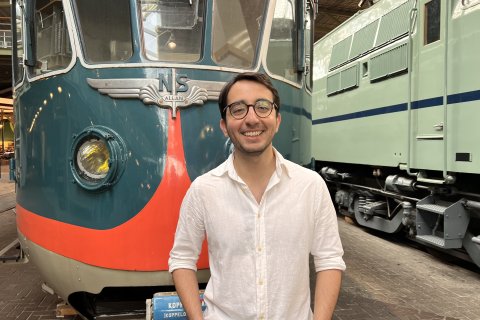Understanding decision-making and human-AI collaboration by railway planners

In this project, PhD student Talha Özüdoğru aims to better understand how railway expert do their tasks, and how they can be better supported in their decision-making by Artificial Intelligence (AI) systems.
The context of the project is that due to growing environmental concerns and the desire for green transportation options, the demand for railway transport is rising every day. Constructing new tracks, especially in densely populated areas, is both challenging and expensive. Therefore, optimizing and maximizing the efficiency of existing track use is a top priority.
The future of rail infrastructure planning demands a sophisticated interplay between human expertise and Artificial Intelligence systems. In the railway sector, experts (namely railway planners and rail traffic operators) make decisions in high-stakes scenarios. In these scenarios, full automation is often undesirable, not only due to the significance of the outcome but also because human experts can draw on their domain knowledge to ensure task success. To have optimal use of AI systems, it is therefore important to understand how human planners do their work, and how AI systems can support them in their tasks. For example, how does interaction with these systems influence human decision-making? And how can we explain the plans created by AI algorithms to humans?
Within this endeavor, Talha Özüdoğru is examining how humans make decisions when interacting with AI systems. He does this in collaboration with NS and ProRail.
Researchers
Talha Özüdoğru Msc, PhD candidate
Academic supervisors
Dr. C.P. Janssen, Dr. L. Van Maanen, Dr. S. Renooij, Prof. Dr. M. Dastani
Grant funding agency and (co-)funding non-academic partners
NS, ProRail, NWO, Ministry of Economic Affairs
